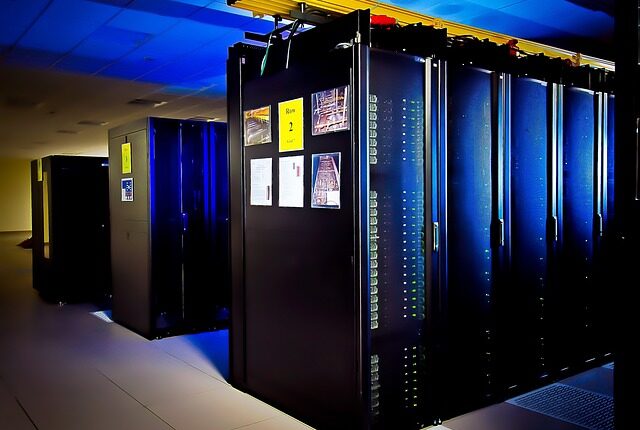Crypto mining case regarding government computers has come to an end. A former employee of the CSIRO ( Commonwealth Scientific and Industrial Research Organization ) in Australia was leveraging supercomputers inside the government agency to mine crypto. Despite the actions taking place in January and February 2018, the individual was just sentenced, and was able to avoid jail time.
Crypto Mining With Supercomputers
According to a recent report, a former government employee at the CSIRO in Australia was leveraging the agencies supercomputers to mine cryptocurrency. Jonathan Khoo, a Federal Government contractor was mining cryptocurrency in January and February of 2018. During this two month period, Jonathan was able to make $9,420 in mining profits.
Further investigations showed that Jonathan was depositing the proceeds into Monero and Ethereum wallets. By leveraging government supercomputers, he essentially had no “out of pocket” costs. The CSIRO stated that Khoo’s actions cost the agency $76,668 in computing power and other resources used to power the facilities.
Sentencing
Jonathan was able to avoid jail time with the magistrate Erin Kennedy sentencing him to a 15 month “intensive corrections order,” which ultimately means he will provide community assistance instead of jail time. Aside from counseling, Khoo has to commit 300 hours of community service.
It is important to note that Khoo was originally caught in February 2018, which resulted in his disband from the government agency.
Following the sentencing, Chris Goldsmid, the Federal Police cybercrime operations commander stated that:
“This man’s activities diverted these supercomputer resources away from performing significant scientific research for the nation, including pulsar data array analysis, medical research and climate modelling work.”
Why Use Supercomputers For Crypto Mining?
There was no reason as to why Khoo chose to mine cryptocurrency on the supercomputers. Even though many would think that supercomputers would provide some sort of competitive edge in mining, that is not always the case. Compared to traditional Bitcoin miners that are operating with ASIC chips, supercomputers operate differently, and would arguably be less efficient.
Based on the infrastructure of supercomputers, many would be less efficient than Asics, resulting in high electricity costs. If a miner has to encounter elevated costs, chances are they will not break even. A perfect example is how the agency mentioned that Khoo generated $9,420 , but cost the government almost $77,000.
With this being said, the best guess is that Khoo did not care about the costs as long as he did not get caught. Since he was using the agencies computers, the costs were indirect while the proceeds were pure profit. Based on a report in March, miner breakeven costs were projected by be around $15,000 post Bitcoin halving, especially if someone was using older devices.
Government Cybersecurity
The breach only costs the government $77,000 , but it could get much worse if they do not get a handle on internal oversight. Interestingly enough, Commander Goldsmid stated that:
“malicious cyber activity, including by people on the inside of organizations, was increasing in scale and severity. He urged companies and government agencies to have a strong culture of cyber security and to strengthen their ability to detect breaches.”
Having a stricter protocol will be essential for governments and other organizations moving forward. This is not the first time that supercomputers have been a target. In May of this year, various supercomputers across Europe were infected with cryptojacking malware. During the process, various login nodes were exploited to obtain control over the systems. This resulted in stolen credentials and login information for various members.
Notice: Information contained herein is not and should not be construed as an offer, solicitation, or recommendation to buy or sell securities. The information has been obtained from sources we believe to be reliable; however no guarantee is made or implied with respect to its accuracy, timeliness, or completeness. Authors may own the crypto currency they discuss. The information and content are subject to change without notice. Visionary Financial and its affiliates do not provide investment, tax, legal or accounting advice. This material has been prepared for informational purposes only and is the opinion of the author, and is not intended to provide, and should not be relied on for, investment, tax, legal, accounting advice. You should consult your own investment, tax, legal and accounting advisors before engaging in any transaction. All content published by Visionary Financial is not an endorsement whatsoever. Visionary Financial was not compensated to submit this article. Please also visit our Privacy policy; disclaimer; and terms and conditions page for further information.

